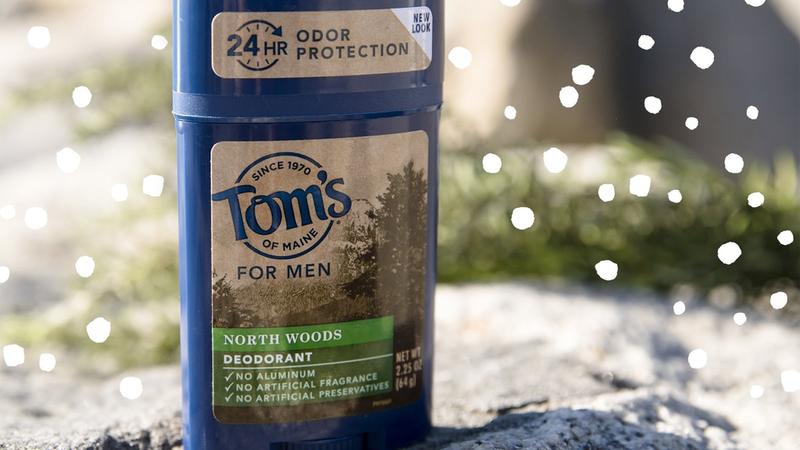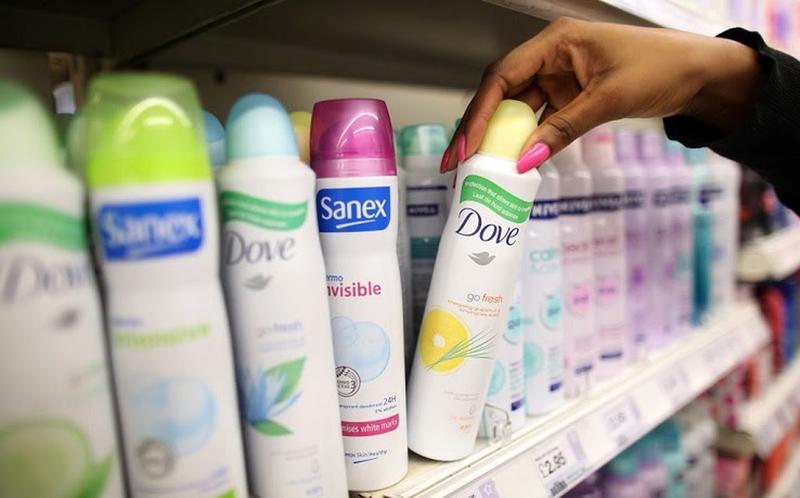
Just like brushing your teeth and combing your hair, putting on antiperspirant, deodorant or a product that combines the two is something you do every day as part of your morning routine. Antiperspirant alone helps control how much your underarms sweat, while deodorant helps control the unpleasant odor that can occur when you sweat. Most products combine the two to achieve the best result — less sweating and no odor — but it’s also possible to find products that only contain one or the other.
Regardless of which type of product you choose, you want a positive outcome, but you shouldn’t have to risk your health to get it. Like far too many of our foods these days, most antiperspirants have a scary-sounding list of chemical ingredients. So, how can you find an antiperspirant that does the job well but doesn’t endanger you with potentially toxic ingredients absorbed into your skin? Let’s take a look at some safer antiperspirant possibilities.
Do Scary Names Equal Scary Consequences?
No doubt about it — when you read scary names like cyclopentasiloxane and PPG-14 butyl ether on the back of an antiperspirant label, you have to wonder how bad it could be for your body. Even aluminum-based ingredients become unrecognizable — and more than a little scary — when you add terms like aluminum zirconium tetrachlorohydrex GLY to the names. As the most common active ingredient in antiperspirants and deodorants, aluminum in any form is a subject of debate and fear.

Some people insist aluminum on the skin could be harmful, but the truth is not that simple. For most of the population, the aluminum found in antiperspirants doesn’t pose a threat to their health at all. Although rumors have circulated for years that the trace amounts of aluminum found in antiperspirants have been linked to cancer — particularly breast cancer — and Alzheimer’s disease, there is no scientific evidence to back this up.
On the other hand, it’s true that trace amounts of aluminum could have a negative effect on people with advanced kidney disease, which occurs at less than 30% kidney function. However, you would have to ingest the aluminum — not apply it to your skin — for it to be harmful.
Parabens are also a source of debate and concern for many people. The first bit of misinformation implies parabens are often found in antiperspirants and deodorants, but the Food and Drug Administration says most major brands don’t contain parabens. (You can easily check the label.) The second bit of misinformation implies that parabens have definitely been linked to breast cancer. The truth is studies have proven that parabens have weak estrogen-like properties, which could possibly increase the risk of breast cancer due to the estrogen link, but no studies have definitely confirmed a connection.
Scan the Shelves for Natural Options
All those other scary names on antiperspirant labels have been cleared as safe for use on human skin, but those assurances aren’t always enough to help you stop worrying about it. If you would simply rather not take the risk, that’s understandable, and various lines of antiperspirant products containing natural ingredients are available to meet your needs. Be aware, however, that if your primary concern is aluminum, many “natural” and “organic” antiperspirants still contain trace amounts of aluminum, so be sure to check the label before buying any of these products.

Natural deodorants sold commercially should be examined closely before buying into the hype that they are as natural as you want them to be. A few popular brands that come highly recommended and seem to live up to their reputations include Aesop, Nature, Real Purity and some Tom’s of Maine products (some still contain aluminum). Most natural brands use alternative ingredients such as baking soda, tapioca starch, charcoal and essential oils to absorb wetness, kill bacteria and keep you smelling fresh and clean.
Sensitive Skin Deserves a Sensitive Solution
When it comes to antiperspirant safety, another major issue for many people is allergies or skin sensitivities. Fragrances and other related ingredients can irritate the skin and leave them feeling itchy. If this is your primary concern, you may care less about aluminum and more about finding products that are unscented or contain ingredients specially formulated to not irritate sensitive skin. Top products of this type include Almay’s clear gel antiperspirant and the line of Dove antiperspirant products.

You could also consider a former prescription-strength antiperspirant that is now sold over the counter. Some prescription-strength roll-on formulas are unscented, which removes the most common source of skin irritation in deodorants. It’s important to note, however, that these particular formulas often include a higher than normal (but still not harmful) concentration of aluminum chloride.
When All Else Fails, Look for Deodorant Alternatives
For those who don’t want to try any products — traditional or otherwise — specifically formulated to act as a deodorant or antiperspirant, there are some natural alternatives you can try. Some of the most popular options include using a mixture of baking soda and water or cornstarch and water to help absorb sweat; rubbing alcohol to quickly evaporate sweat; and lemon juice (or a lemon itself), essential oils like lavender and thyme, and witch hazel to help with odor control. Crystal rock deodorants made of potassium alum, a mineral salt that supposedly has antimicrobial properties, also has a significant fan following.






